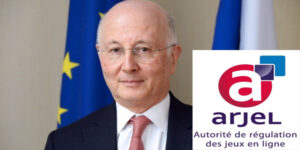
French online gaming regulator ARJEL has issued a report stating that poker is a fad and that it’s “over,” based on numbers indicating that active accounts continue to decline. In a public report issued by ARJEL President Charles Coppolani, who recently stepped into the position, poker was deemed to be “too complicated” for younger players.
Then again, France, by its own admission, has been home to multiple disasters while trying to regulate and foster an online poker economy.
A String of Bad Decisions and Worse Results
Globally, it’s widely accepted that France’s woes to grow their poker market are plagued by bad decisions, including a lack of player liquidity, changing taxes to cripple players, and stifling the number of games offered. The report by ARJEL says that 2013 will be remembered as a year, showing a “brutal downturn” for cash games, but modest gains for tournament fees.
The most shocking element of the report were the massive losses seen by poker operators in France. Last year’s report showed that sites lost €68 million ($88.12 million USD) and the year before that, the loss as a staggering €88 million ($114 million USD). As a percentage of gross gaming revenues, French gaming and sales taxes are 37 percent for online poker.
Comments Baffle Poker Players
The concept of poker as a whole as being a fad was seen with quizzical eyes in the minds of many poker players, but that’s reality, according to Coppolani. He said, in a translated article from French periodical Les Echos, “The fad is over. Basically, the online poker market may be mature.”
He also went on to blame declining traffic on many different, controversial reasons. Stating that poker is far too complicated for a young audience, Coppolani also said that the decrease in the number of active online players in France is due to the fact that players are moving out of the country or playing on illegal websites.
Let’s Get Real
France, since adopting laws to regulate online poker and not share its player pool with any other country, has been criticized for years about its policies that are killing its own industry. Players have petitioned the government to lower rake and taxes, which are by far some of the most aggressive in the world. Many point to this as the primary reason French poker players are refusing to play online, at least legally, on regulated sites. The lack of a global player pool, otherwise known as liquidity sharing, has also been identified to be crucial to poker’s future, at least according to former ARJEL President, Francois Vilotte.
Overall Numbers Down, Tournament Numbers Up
Back in 2010, France enacted laws to close its borders for online poker with the rest of Europe and injected taxes at the tables. Since that date, concurrency numbers for active accounts have declined. In the report that was released recently, ARJEL said that during the first quarter of 2014, a 12 percent decline in created accounts was seen as compared to the same quarter a year ago. The number of active accounts has decreased from 299,000 to 263,000 which has cost online site operators approximately 10 percent of their revenues. Cash game revenues are actually down 18 percent at the tables.
By contrast, online tournament play is actually up, and has helped offset losses at the cash game tables, as revenues for tournament fees were up 5 percent. It appears that those players frustrated by excessive taxes and a reduced player pool in cash games have turned their attention to tournament games. While cash game traffic and revenues were down, there were gains with tournament revenues, but not enough to offset the massive losses at ring games.


